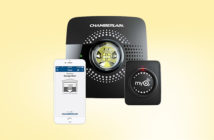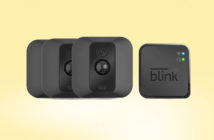Fitness trackers seem to be everywhere nowadays. Of course, with so many different options to choose from, it can be tough to decide which brand (and what kind of tracker) is right for you and your personal fitness plan.
What is a fitness tracker and how do they work? Let’s find out below!
Contents
What is a Fitness Tracker?
A fitness tracker is a device you can wear around your wrist, like you would a wristwatch, all throughout the day to keep track of different body parameters.
You also need to input your weight, height, gender, and other physiological details to keep on track of your personal fitness goals.
There are a great number of sensors embedded into the tracker, which measure things like heart rate and temperature. However, the most important sensor records your body movements.
You don’t need to buy a fancy fitness tracker device to keep yourself in shape. Nowadays, there are quite a few reliable fitness tracker apps made for smartwatches, which you can then sync to your computer or smartphone to track your data and progress.
How Do Fitness Trackers Work?
Accelerometers
All fitness trackers use an accelerometer to record your movement (as well as the approximate number of steps you take) in every direction.
Not all accelerometers are created equal, however. You’ll find both digital and analog versions, each with their own sensitivities and varying number of axes (or directions).
The most basic trackers only track two axes, while three-axis sensors will measure your movement in three dimensions.
GPS
Some fitness trackers also have GPSs embedded into them. These allow you to easily map your exercise routes, as well as analyze any surrounding terrain in the areas where you are exercising.
While these do far more for hikers, runners, and cyclists than basic step counters ever could, they also tend to eat up a lot of your fitness tracker’s battery.
Keep this in mind before you head off to an unfamiliar area without charging it first.
![]()
Heart Rate Monitor
Your fitness tracker may also have an optical heart rate monitor, which is a sensor that measures your heart rate using light.
Basically, the device will shine an LED light through your skin. From this, the optical sensor will examine the amount of light that comes back.
Since blood absorbs light, fluctuations in the amount of light detected may then be translated into an approximate heart rate. This process is known as photoplethysmography.
Wrist fitness trackers aren’t as accurate in measuring your heart rate as the ones that doctors use on your fingertips or chest. Even still, they are slowly but surely getting there.
Galvanic Skin Response Sensors
Galvanic skin response sensors measure the electrical connectivity levels of your skin. When you become aroused in any way, your skin then becomes a better conductor of electricity.
Basically, when you sweat, either from exercise or something else entirely, your tracker will monitor this response.
Not every fitness tracker will have this sensor, but it does help to track multiple parameters at once, including how much you are sweating to indicate just how much you are keeping to your exercise regimen.
![]()
What Does It Do With Your Data?
All the data your fitness tracker collects is then converted into steps, calories burned, and overall sleep quality. However, keep in mind that most of these measurements are only approximations, not definitive numbers.
This information is then processed to create an intimate look at your health and progress. The more sensors your fitness tracker has, the more accurate this data will be.
Different fitness trackers will track different parameters, but the best fitness tracker will be able to measure the acceleration, frequency, duration, intensity, and even exact patterns of your movement throughout the day.
To know what kinds of sensors your fitness tracker has, just take a look at their specs list.
What Metrics Do They Track?
Every fitness tracker counts the approximate number of steps you take each day. Most will measure your movement during sleep, too.
This is especially helpful if you have been diagnosed with a sleep disorder – or at least suspect that you have one. Instead of rushing to book a night at a sleep clinic right away, you can try to get an idea of how well you’re sleeping at night with a combined fitness and sleep tracker.
They use several sensors to record when you’re sleeping, what phase of sleep you’re in, and may even suggest helpful tips and advice you can follow to get a better night’s sleep.
Fancier fitness trackers may also track your heart rate, blood oxygen level, skin temperature, how much you sweat, and changes in your body weight and body mass.
This video goes into more detail on how a fitness tracker works.
Top Fitness Tracker Brands
There are several big names in fitness tracker brands nowadays. Let’s compare a few of them down below.
Fitbit
Most people who’ve heard of fitness trackers know about Fitbit. The best thing about Fitbit is that they offer both a website and a handy mobile app for iOS, Android, and Windows 10 Mobile users, allowing them to sync up their fitness tracker devices.
This way, you can connect your tracker to your mobile phone or a Bluetooth-equipped computer running Windows or MacOS. Users can log their meals and snacks, daily activities, and weight into this device, so they can keep better track of daily and weekly fitness goals.
The number of calories burned and consumed is more accurately measured when users keep their tracker on all day, but you can also use the Fitbit app independently to track your progress.
The app also offers a community page, where users can make friends with others and even playfully compete against them. Fitbit has found that friendly competition actually boosts motivation.
Users who have friends on the app take an average of 700 more steps per day than those who don’t.The app also encourages improvement through the ability to share progress pictures and achievement badges.
Apple
Most people operate their Apple Watch as an extension of their iPhone, using it to simply take calls, control music, read emails, and so on.
What most people don’t know, however, is that you can use your Apple Watch as a fitness tracker, too! You can easily track your workouts, fitness goals, heart health, and sleep activity all on this one device.
In fact, the Apple Watch Series 4 was deemed to be one of the most advanced fitness trackers out there, due to its vast amount of features.
Under Armour
Like many fitness trackers, the Under Armour Band can track your steps, sleep activity, and calorie consumption. It has a battery life of up to five whole days.
It mainly uses an accelerometer to track steps, along with an optical heart rate monitor. Keep in mind that this monitor is only able to get accurate readings on your resting heart rate, so this feature may seem a bit useless.
If you want to get real-time heart rate readings, you will need to attach the optional chest strap to yourself before working out.
Outside of the usual text, call, and calendar notifications, it will also remind you to move around every so often, especially if you are sitting down for too long. You can also connect with friends who have the same type of fitness tracker.
The Under Armour Band also comes with a timer, a stopwatch, airplane mode, an alarm clock, and different workout modes for you to choose from.
![]()
Nike
The Nike+ Fuel Band SE has a wide variety of features to try. Like other fitness trackers, the Nike+ Fuel Band tracks your workouts and sleep activity using Nike+ Sessions.
They incentivize their users with Nike Fuel, their unique measuring system for all kinds of activities and exercises.
It is able to count your steps, tell the time, track your fitness progress, connect you to your friends via Nike+ Groups and through your phone to keep you motivated, and send you daily Move reminders to push you further to your goals.
Nike+ Sessions will keep track of all your activity and parameters through Nike Fuel. Then, the data will be consolidated so you can better understand what activities you will get the most out of.
Garmin
Garmin prides itself on making eye-catching, durable fitness trackers that will help you meet your fitness goals.
All of their trackers are designed to withstand all kinds of everyday wear and tear, as well as extreme weather conditions, so you don’t have to worry about pausing your workout to check if it’s okay.
They also offer great waterproof swimming fitness trackers!
Do Fitness Trackers Help With Weight Loss and Fitness Goals?
Survey Says…
Research suggests that using a fitness tracker may actually result in decreased rather than increased weight loss. Additionally, it suggests that sleep sensors aren’t very accurate at detecting wakefulness.
Admittedly, though, most studies conducted on fitness trackers have produced inconclusive findings due to short testing periods without follow-ups and small, homogenous sample sizes.
Even a couple of the more well-designed studies produced some pretty weak results.
No Effect
The first was a randomized, controlled trial of 800 test subjects. It found that, after using the fitness trackers for one year, these devices had virtually no effect on their test subjects’ overall health or fitness levels—even when certain subjects had a financial incentive to look forward to.
![]()
Lose More Weight Without Them
The second wanted to see if combining a weight loss program with a fitness tracker worn on the upper arm would aid in their test subjects’ weight loss, or show improvement in their overall health.
They published their results in the Journal of the American Medical Association and found that subjects who did not use fitness trackers actually lost more weight than those who did. The overall difference in loss measured at about eight pounds.
Of course, while weight alone is not the best measurement for good health, these findings seem to indicate that people who regularly use fitness trackers weren’t any more active or fit than those who don’t use them at all.
Apps Over Devices
It doesn’t help that there are also a good variety of free fitness tracker apps available that can do pretty much the same things normal fitness trackers can—and even some things that they can’t!
Why Are Trackers Still Important?
However, many people continue to use and believe in their fitness trackers despite these results. Why?
Encouraging Reminder
Well, while these devices may not succeed on a widespread, scientific level, many people report that using a fitness tracker helps motivate them to work out more.
This is because merely seeing the tracker around your arm keeps your fitness and health at the front of your mind at all times.
When you check your phone, you will also get notifications and status updates on your progress towards your goals.
New Perspective
Basically, the spirit of what the device represents is what matters more to people than the accuracy of their fitness tracker’s sensors and the actual amount of weight lost.
It turns fitness into a fun game and you are able to track your progress with real, quantifiable results.
Record-Keeping and Goal-Tracking
The tracker creates a baseline of your daily movement and helps you focus on setting bigger step count goals each day. You can use it as both a motivational tool and as a historical record of your progress.
If you relapse or don’t have time to work out as much as you want, you can easily call back to all the progress you’ve made so far.
Of course, you should only ever use the information your trackers provide as a mere guide, not an excuse to eat unhealthily or ignore any of your doctor’s advice. Always be sure to eat well alongside working out, and you are sure to see some results soon!
This video has more details on what to look for in a fitness tracker.
Conclusion
Fitness trackers are amazing, little devices that can help keep you motivated to follow your own personal fitness goals. With so many different kinds available, it may be hard to choose.
Take a close look at the specs (and the price tag) of every brand and model, and you are sure to find a suitable fitness tracker for you!
What’s your favorite fitness tracker?



